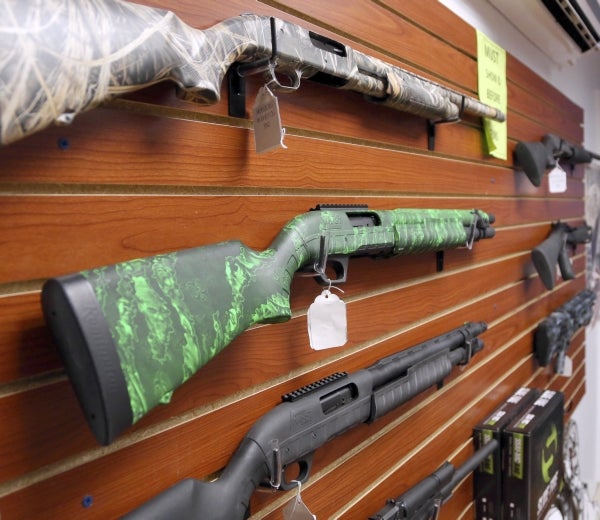The Supreme Court’s healthy skepticism on guns
Published 12:14 pm Wednesday, November 29, 2017

- Guns displayed at a gun store.
Bloomberg View
Has the Supreme Court grown gun-shy? Ever since recognizing an individual right to bear arms almost a decade ago, the court has been skeptical of a series of claims from promoters of gun rights.
On Monday, the court declined to hear two such cases. The result is that a Maryland ban on semi-automatic rifles such as the AR-15, along with a ban on large-capacity detachable magazines, will be allowed to stand, as will be Florida’s ban on the open carry of firearms.
Paradoxically, the case that established the individual right to bear arms — 2008’s District of Columbia v Heller — helps to explain Monday’s rulings. In Heller, Justice Antonin Scalia explicitly stated that the right “is not unlimited.” That acknowledgment has helped bolster sensible regulation in the years since his precedent-breaking opinion in a 5-4 decision.
Also important is a more robust historical record. An amicus brief filed in the Florida case by Everytown for Gun Safety, which is supported by Bloomberg LP founder Michael Bloomberg, cites numerous state prohibitions on carrying firearms, openly and otherwise, dating from colonial and early U.S. history. The notion that gun regulation is somehow anti-American would be news to America’s early settlers.
The question of how far gun rights extend has yet to be clearly established. It’s possible that the court is waiting for a different case to make its latest mark on gun rights. Congress, by contrast, need not wait.
The House Judiciary Committee is scheduled to mark up the Concealed Carry Reciprocity Act of 2017 this week. The bill, which effectively establishes the most lax state regulation of concealed carry as a de facto national standard, makes a mockery of public safety and federalism at the same time. The law might be good for gun manufacturers, but it would be bad for Americans — and a break from the best of American history, too.

